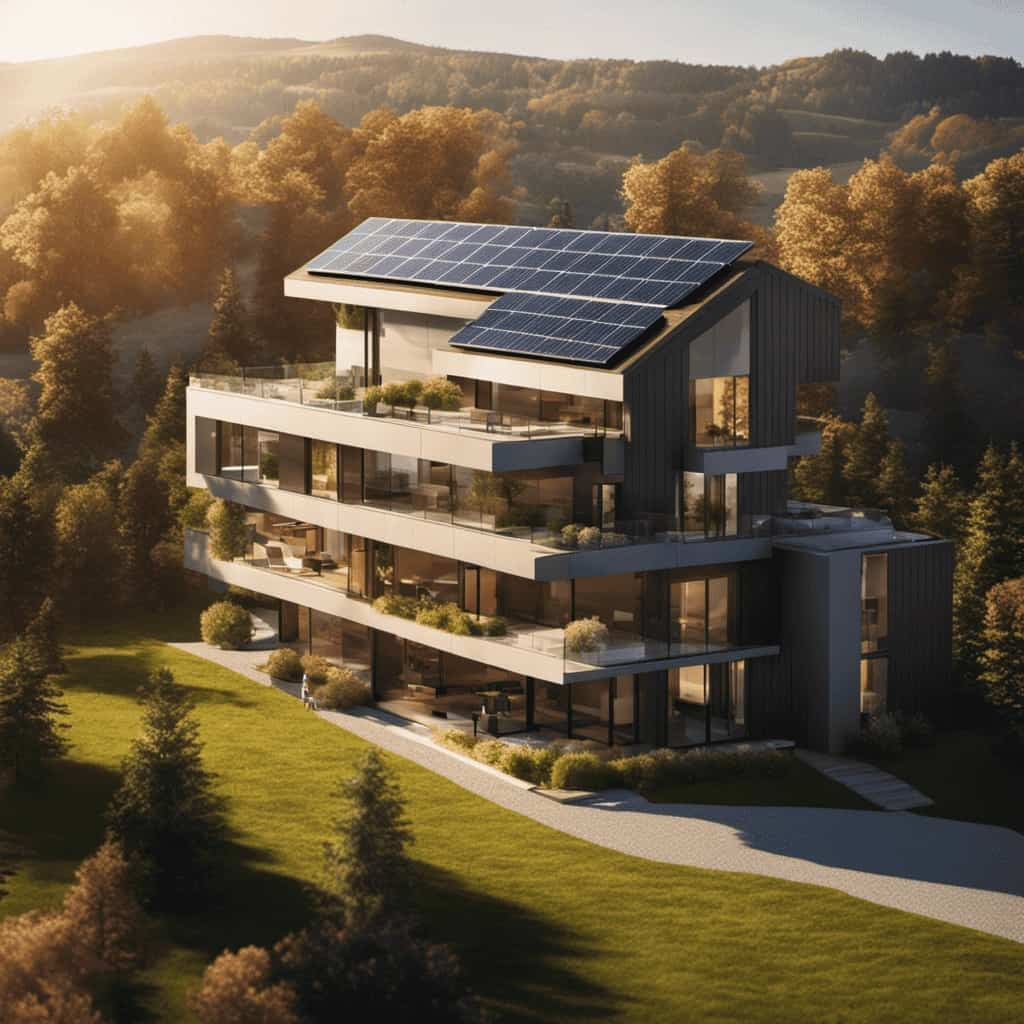We’ve all heard about the energy-saving advantages of heat pumps, but are you aware that their efficiency ratings can differ significantly? Recent studies show that the efficiency gap between the most and least efficient models can be as large as 50%!
In this article, we will conduct a cost-benefit analysis of heat pump efficiency to help you make an informed decision. By comparing initial investment, long-term savings, and additional benefits, we aim to provide innovative insights for maximizing both comfort and energy efficiency.
Key Takeaways
- Efficiency ratings vary significantly between heat pump models, with differences as high as 50%.
- Proper installation is crucial for maximizing efficiency and reducing energy consumption.
- Selecting a high-efficiency heat pump can lead to significant monthly energy savings and lower utility bills.
- Analyzing the payback period helps determine the cost-effectiveness of heat pumps, considering the time it takes for energy savings to offset the initial cost.
Understanding Heat Pump Efficiency Ratings
We believe understanding heat pump efficiency ratings is crucial when comparing different models for cost-effectiveness.
Heat pump technology has evolved significantly in recent years, offering innovative solutions for efficient heating and cooling.

Efficiency ratings, such as the Seasonal Energy Efficiency Ratio (SEER) and Heating Seasonal Performance Factor (HSPF), provide valuable insights into a heat pump’s energy consumption. The SEER measures the cooling efficiency, while the HSPF evaluates the heating efficiency.
Higher ratings indicate better energy efficiency and lower operating costs. By comparing these ratings, consumers can make informed decisions about which heat pump model will provide the most cost-effective and energy-efficient solution for their needs.
Understanding heat pump efficiency ratings empowers consumers to choose innovative technologies that not only save energy but also reduce their environmental impact.
Factors Affecting the Cost and Energy Savings of Heat Pumps
When considering the cost and energy savings of heat pumps, it’s important to take into account various factors that can impact their efficiency and overall performance. One of the key factors is the proper installation of the heat pump system. A poorly installed heat pump can lead to reduced efficiency and increased energy consumption. It’s crucial to ensure that the heat pump is correctly sized and installed by a qualified professional to maximize its performance and energy savings.

Another factor that affects the cost and energy savings of heat pumps is the energy consumption. Heat pumps rely on electricity to operate, and their efficiency is measured by their coefficient of performance (COP). A higher COP indicates a more efficient heat pump, which means lower energy consumption and cost. Factors such as insulation levels, temperature settings, and maintenance also play a role in determining the energy consumption of a heat pump.
Comparing the Initial Investment and Long-Term Savings of Different Heat Pump Models
Our analysis compares the initial investment and long-term savings of various heat pump models.
When considering the initial cost, it’s important to evaluate the upfront expenses associated with purchasing and installing a heat pump. Different models have varying price points, depending on factors such as size, brand, and efficiency rating.
However, it’s crucial to look beyond the initial cost and consider the long-term savings that can be achieved through reduced energy consumption. Heat pumps are known for their energy efficiency, which translates into lower utility bills over time.

By selecting a heat pump model with a high energy efficiency rating, homeowners can enjoy significant savings on their monthly energy expenses.
Therefore, it’s essential to carefully consider both the initial cost and the potential long-term savings when comparing different heat pump models.
Analyzing the Payback Period: When Will the Energy Savings Offset the Cost
To determine when the energy savings will offset the cost, we must carefully analyze the payback period of the heat pump. This involves calculating the savings generated by the heat pump and evaluating the return on investment (ROI). By comparing the initial investment with the long-term savings, we can determine how long it will take for the energy savings to cover the cost of the heat pump.
To calculate the savings, we need to consider factors such as the energy efficiency of the heat pump, the cost of energy, and the expected usage. By estimating the amount of energy saved compared to a traditional heating system, we can determine the annual savings.

Once we’ve calculated the savings, we can evaluate the ROI by dividing the initial investment by the annual savings. This will give us the number of years it will take for the energy savings to offset the cost of the heat pump.
Considering Additional Benefits: Comfort, Environmental Impact, and Incentives
As we consider the cost-benefit analysis of heat pump efficiency, it’s important to also evaluate the additional benefits of comfort, environmental impact, and incentives.
Heat pumps not only provide energy savings but also offer comfort benefits. Unlike traditional heating and cooling systems, heat pumps provide consistent and even heating or cooling throughout the home, eliminating cold spots and drafts. This enhanced comfort can greatly improve the overall living experience.
Moreover, heat pumps have a lower environmental impact compared to traditional HVAC systems. They utilize renewable energy sources, such as the air or ground, to heat or cool a space, reducing greenhouse gas emissions and reliance on fossil fuels.

Additionally, government incentives, such as tax credits or grants, further enhance the cost-effectiveness of heat pump installations, making them a more attractive option for homeowners.
Frequently Asked Questions
How Does the Efficiency Rating of a Heat Pump Affect Its Performance and Energy Savings?
The efficiency rating of a heat pump directly affects its performance and energy savings. Higher efficiency ratings indicate greater energy savings, making heat pumps with higher ratings more cost-effective and environmentally friendly.
Are There Any Government Incentives or Rebates Available for Installing a Heat Pump?
Yes, there are government incentives and heat pump rebates available for installation. These programs aim to encourage energy-efficient practices and offer financial assistance to individuals who choose to install heat pumps.
What Are the Key Factors to Consider When Comparing the Initial Investment and Long-Term Savings of Different Heat Pump Models?
When comparing heat pump models, key factors to consider include the initial investment and long-term savings. It is important to analyze the heat pump installation process and maintenance requirements to determine the most cost-effective and efficient option.

How Does the Size of a Heat Pump Unit Impact Its Efficiency and Overall Performance?
The size of a heat pump unit has a significant impact on its efficiency and overall performance. By considering the size and efficiency rating, we can optimize the heat pump’s performance, leading to greater energy savings and improved comfort.
Can a Heat Pump Be Used as a Standalone Heating and Cooling System, or Does It Need to Be Paired With Other HVAC Equipment?
A standalone heat pump can be used for both heating and cooling without the need for additional HVAC equipment. However, compatibility with existing systems should be considered to ensure optimal performance and energy efficiency.
Conclusion
In conclusion, when comparing heat pump efficiency, it’s crucial to consider factors such as initial investment, long-term savings, and payback period.
However, it’s equally important to recognize the additional benefits that come with heat pumps, including increased comfort, reduced environmental impact, and potential incentives.

By weighing these factors, individuals can make informed decisions that not only save them money but also contribute to a more sustainable future.
The heat pump becomes a symbol of both economic and environmental responsibility.









